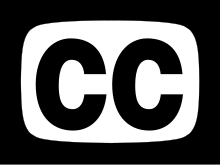Accessibility for All
The City of Chicago provides accessible programs and services so that anyone can participate, including people with disabilities. Our City has more than 1.9 million people who live, work, and visit. Our City provides accessibility for anyone including residents, visitors, and businesses. Examples include American Sign Language (ASL) interpretation, Real Time Captioning, Assistive Listening Devices, materials available in alternate format upon request, wheelchairs available for use at City Hall, ensuring service animals are welcome, and any other access needs.
If you need accessibility, please send an email to access@cityofchicago.org. If you are at City Hall, please feel free to stop by the Mayor’s Office for People with Disabilities, located on the main floor of City Hall, at 121 N. LaSalle, Room 104, Chicago, IL 60602.
We want to learn more about your experiences, including positive experiences. If you experience a disability access barrier, please let us know by sending an e-mail or providing more information using this form: Share an Accessibility Barrier. You can call us to share information by calling (312) 744-7050 or send an e-mail to: access@cityofchicago.org.
Below is more accessibility information that we provide so that anyone can use City services and programs. Please feel free to send an e-mail to access@cityofchicago.org to use any of these services and/or ask for other types of accessibility.
Service animals are welcome:Service animals are defined as dogs that are individually trained to do work or perform tasks for people with disabilities. |
|
Wheelchair Rentals:A limited number of wheelchairs for use while at City Hall are available at MOPD (Room 104). The wheelchairs are manually operated and may not be taken outside City Hall. |
|
American Sign Language Interpretation:American Sign Language (ASL) interpreters facilitate communication between deaf and hard-of-hearing individuals who use ASL and individuals who do not know ASL. Note that interpretation is for all parties, not only the individual who has hearing loss because, in this situation, all parties use the interpreter. Interpretation is available for both in-person and virtual meetings (including on virtual platforms including Zoom, MS Teams, and other available virtual platforms). The following types of interpretation can be requested: ASL Interpretation: Interpreters interpret American Sign Language (ASL) and English, and require fluency in both languages. Transliteration: Interpreters transliterate between spoken English and a sign representation of English and generally follow English word order, rather than the grammatical structure of ASL. The interpreter will repeat without using their voice what is said, while simultaneously signing what is said, in English word order. This allows the deaf or hard of hearing individual to access the exact terminology communicated by mouth, along with ASL signs when watching the interpreter providing transliteration. Tactile interpretation: Interpretation provided for individuals who are DeafBlind, where the interpreter creates signs in the person's hand while using other tactile cues to describe effect and environment. Oral transliteration: Oral transliterators silently repeat the English being spoken, and may often supplement this with gestures or pointing; ASL signs are typically not used. This may be preferred by individuals with hearing loss who can benefit from lipreading and do not use ASL. Cued Speech Transliteration: A visual communication system where hand shapes positioned near the mouth represent consonants near the mouth to represent English phonetic markers. |
|
Captioning:Captioning is available and can be provided in several ways. Captioning benefits deaf and hard-of-hearing individuals, and is also valuable for many others. CART Captioning: (Communication Access Realtime Translation) is provided by a skilled and trained real-time captioner who inputs all the information presented using a stenographer keyboard, creating a word-for-word live transcript, which is then available for viewing on a computer or laptop screen, or via a virtual platform. CART captioning can be provided for in-person meetings and events, and also for virtual events. Remote CART Captioning: Remote CART captioning for a virtual event is provided through remote captioning, where the real-time captioner will connect to the virtual platform and input all the information presented either via that virtual event's platform and/or via a separate stream text link. |
|
Assistive Listening Devices:Assistive Listening Devices (ALDs) provide a direct connection for people with hearing loss to access sound being transmitted through a sound system. ALDs are beneficial for people with hearing loss, including hearing aids and/or cochlear implant users, using the telecoil (known as "t" coil). ALDs can also help people with hearing loss who do not have hearing aids or cochlear implants. The City of Chicago currently has ALDs available at City Council Chambers (located on the second floor of City Hall) and at the Cindy Pritzker Auditorium, located at Harold Washington Library. |
|
Materials in alternative formats:Materials in alternative formats are available. For example, materials can be provided in large print or electronic formats. Materials in braille can be provided with advance notice. Materials can also be read out loud by a reader, upon request. |
 |




